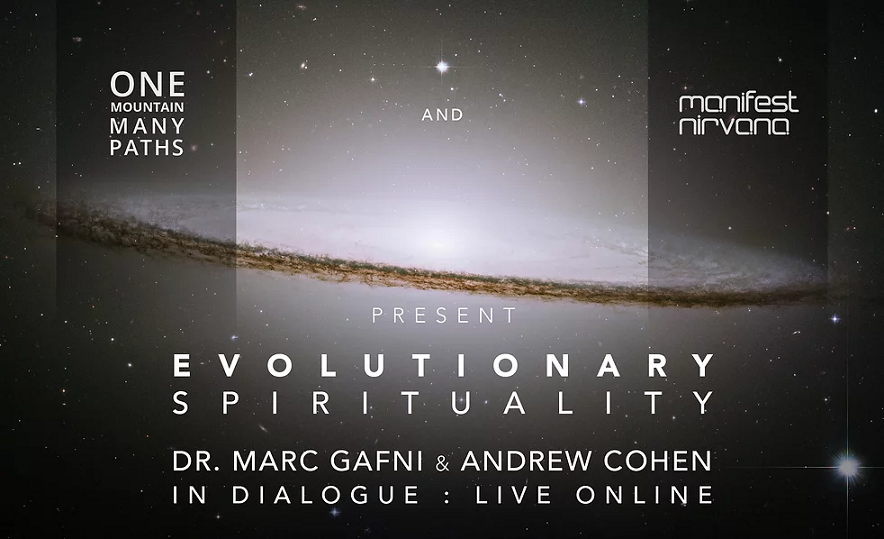Is Religion for the Happy-Minded? A Response to Harold Kushner
Written and published by Marc Gafni in 1986 for Tradition: A Journal of Orthodox Jewish Thought, Vol. 22, No. 3 (FALL 1986), pp. 54-65.
In a very profound way, Harold Kushner’s When Bad Things Happen to Good People (Avon Books, 1981) and the themes it treats evoke in the reader feelings of warmth, compassion, and drawing one closer to all who suffer in this world. The tragic story of Aaron Kushner (the author’s son) and the very real depth with which his parents experienced suffering cannot but make one feel like reaching out in love and respect to the author. Yet, at the same time, I found the underlying premises of the book deeply troubling. Its message, meant to be comforting, is, in fact, nothing short of terrifying.
Kushner, claiming to speak for Judaism, asserts that God is, in his term, “powerless” (pp. 42-44). “God does not, and cannot, intervene in human affairs to avert tragedy and suffering. At most, He offers us His divine comfort, and expresses His divine anger that such horrible things happen to people. God, in the face of tragedy, is impotent. The most God can do,” Kushner eloquently proclaims, “is to stand on the side of the victim; not the executioner.”
That God gives free reign to an executioner is a common Jewish position, classical, medieval and modern. “Once permission is given for the destroyer to destroy, no distinction is made between the righteous and the wicked.” (Rashi Exodus 12:22).
While Judaism certainly maintains that God, in His divine empathy, stands on the side of the victim, no classical Jewish position has ever maintained that God is incapable of controlling the executioner.
Kushner uses the book of Job to lend the weight of religious authority to his position. Merely to point out the obvious-that Kushner’s interpretation of the book of Job, for instance, has little or nothing to do with the Biblical book by that name-fails to undermine the popular appeal that has propelled Kushner’s book to the bestseller lists. In fact, Kushner feels quite comfortable admitting to intellectual dishonesty. In an interview with Moment magazine (November 1981), he was asked: “You argue that it is simply wrong to blame God for the bad luck, for the nastiness, for the evil; and yet you are perfectly prepared to praise God for the good, to thank God. How do you reconcile that?” To which he carefully replied: “Walter Kaufman calls it ‘religious gerrymandering’.’ That is you draw the lines for your definition of God to include certain things and exclude others.”
While I certainly believe that profound suffering moved Kushner to take up his pen, that still cannot justify intellectual gerrymandering.
The heart of Kushner’s position is the claim that traditional beliefs about God’s relationship to the universe, and to man, are wrong, and that his own account is right.
Kushner’s basic method of argumentation is anecdotal. He cites particular cases of suffering and then a,· mpts to demonstrate the inadequacy of various theodicies as applied to those cases. But the best theodicy is still a human, all too human, theodicy. No theodicy can give pat answers for every circumstance of suffering. Theological reflection can deepen our appreciation of the problem and provide frames of reference with which to approach the experience of suffering. However, from no single set of theological premises can an all-embracing solution be expected. God, we believe, knows the results of all good and evil, past, present, and future, and measures the diverse values (spiritual; intellectual, ethical, aesthetic, hedonic, etc.) which the universe displays, and with which man is confronted. Man does not. Therefore, we must beware of “refuting” theological reflection by showing that it has difficulty fulfilling claims that it has never made.
II
It is instructive to examine Kushner’s position on his own terms. This section of the essay will comment on six of the life cases which Kushner cites to support his general conception of religion, his rejection of classic theodicy and his central claim: that God cannot control what happens in our world.
The Case of Bob (pp. 94-96)
Bob has just made the difficult decision to place his mother in a nursing home. Although his mother is “basically alert and healthy and does not require medical care” she can no longer live alone. After a brief attempt, Bob and his family decide that “they are not prepared to make the sacrifice of time and lifestyle which caring for a sick, old woman requires.” That weekend, Bob, who did not usually go to synagogue, went to services hoping they would give him “the tranquility and peace of mind he needed.” As luck would have it, the sermon that morning was on the fifth commandment. The clergyman spoke of the sacrifices parents make in raising children and the reluctance of children to make sacrifices for older parents in return. He asked: “Why is it one mother can care for six children, but six children can’t care for one mother?” It bothers Kushner that Bob was made to leave the service feeling “hurt and angry.” Bob feels that religion has told him that he is a “selfish and uncaring person.” He is haunted by the idea that if she dies soon he will never be able to live with himself “for having made her last years miserable because of his selfishness.” And Kushner, too, is upset with religion because “the purpose of religion should be to make us feel good about ourselves” after making difficult decisions. (more…)

